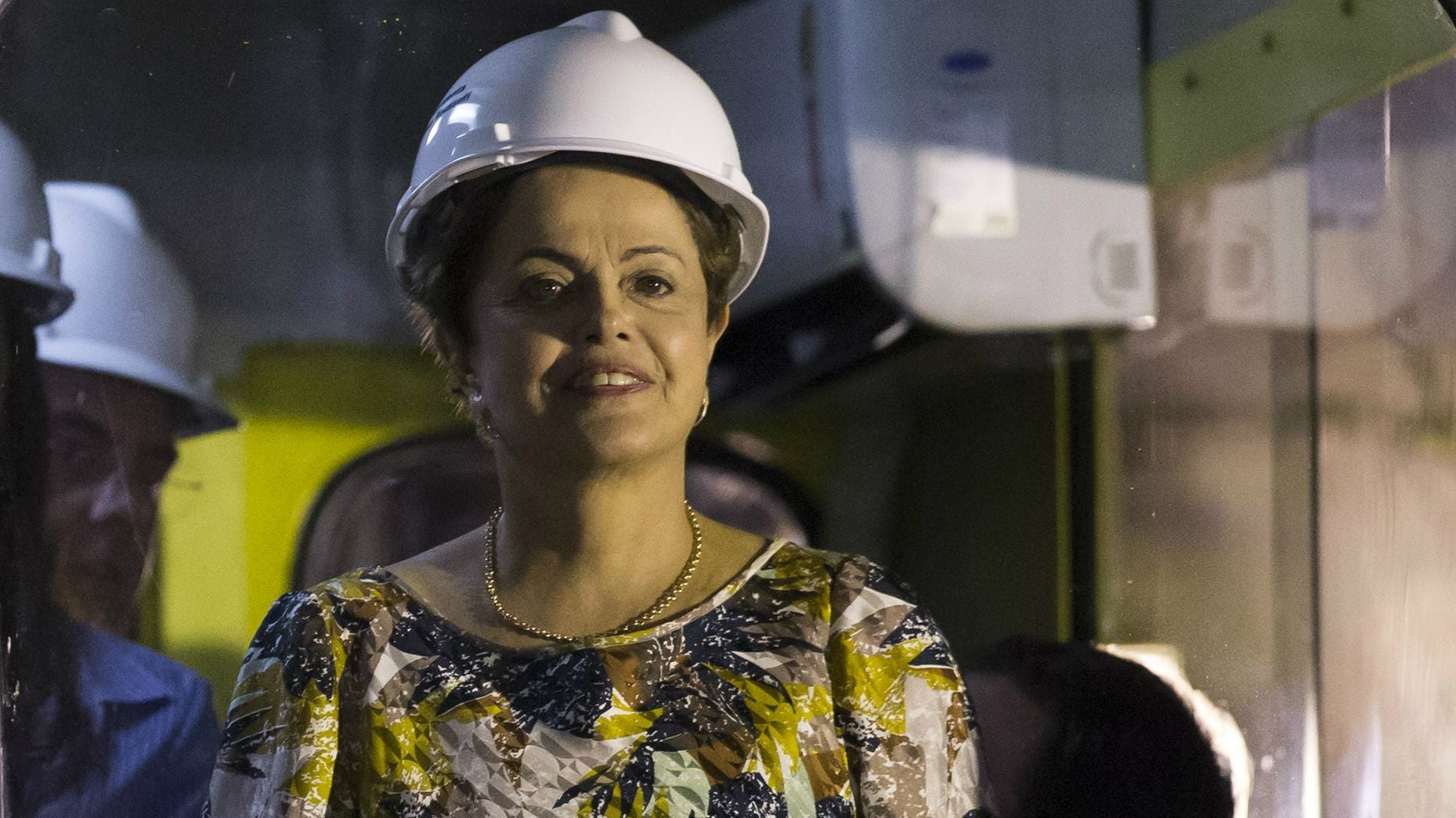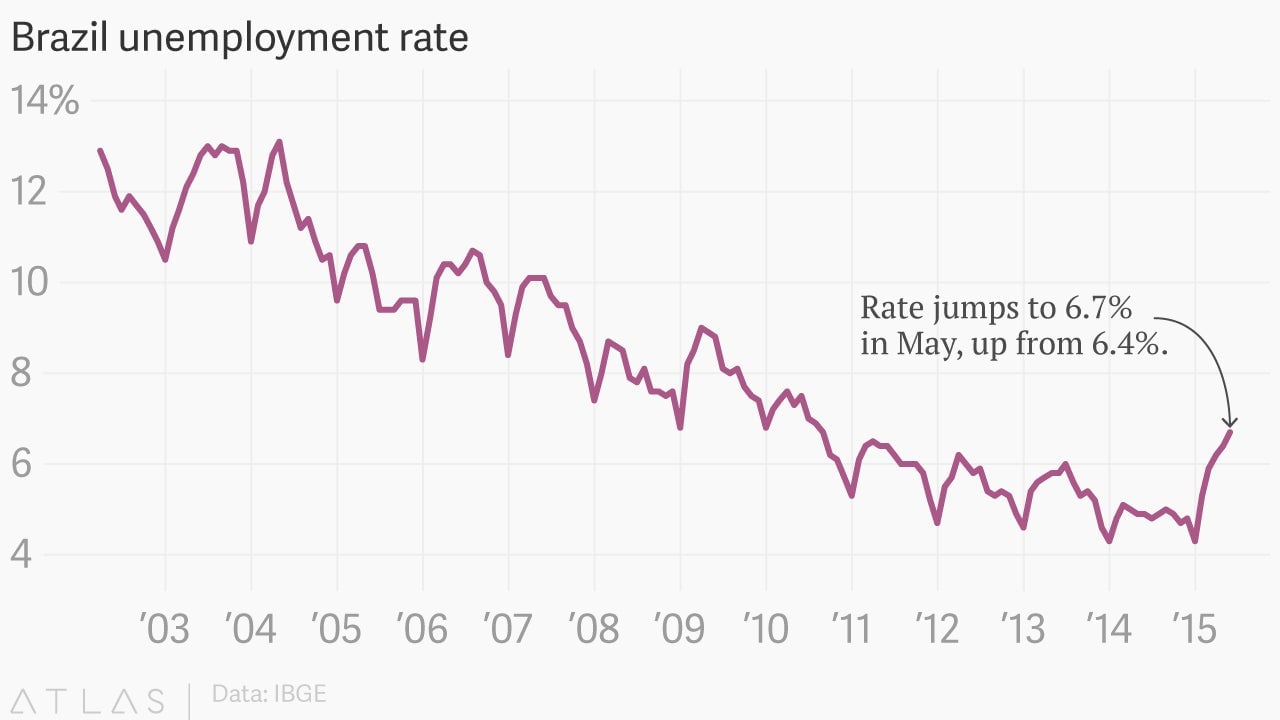Dilma Rousseff needs to be on her best behavior for this US visit
Dilma Rousseff will be joining Barack Obama for dinner tonight.


Dilma Rousseff will be joining Barack Obama for dinner tonight.
The last time the Brazilian president visited with Obama in the US, in 2012, both Brazilians and Americans shook their heads when she wasn’t received with the formality of a state visit. It showed a lack of respect for the rising global economic might of Brazil, they said, and highlighted tension between the North and South American powers.
Relations grew tenser still the following year when Dilma (as she is widely known in Brazil) postponed a state visit in protest, after Edward Snowden revealed the NSA had been spying on Brazilians’ communications, including her own.
When Dilma was last on American soil, Brazil’s currency was strong, the price of oil was high, most voters approved of their president, and the World Cup was going to provide a spotlight for the country to show off its talent on the pitch—and its economic prowess.
How the tides have turned.
Diving approval ratings
In April, 2012, 64% of Brazilians thought their president was doing a “good or great” job in her first term, and only 5% wholly disapproved of her performance, rating it “bad or terrible,” according to research by Datafolha, a leading polling institute in Brazil.
Today, those numbers have nearly reversed. In the most recent poll, taken earlier this month, 65% of Brazilians rated Dilma as “bad or terrible,” with only 10% giving her high marks. Her disapproval ratings are the worst for a Brazilian president since 1992—and that president was impeached.
The sliding, slippery state of oil—and Petrobras
The discovery of deep sea oil off Brazilian shores in 2007 gave Brazilians reason for optimism. “Brazil drew a winning lottery ticket,” Dilma’s predecessor, Lula da Silva, said. But the price of oil has tanked since then, and Petrobras, the state-controlled oil company responsible for extracting and selling that oil, is all but imploding.
The investigation of a widespread corruption scandal at Petrobras, where Dilma was chairwoman from 2003 to 2010, continues to unfold, implicating top executives and politicians from Dilma’s worker’s party (PT), and shaking what’s left of anyone’s confidence in the country’s government and private sector. On Friday, police arrested Marcelo Odebrecht and Otavio Marques Azevedo, the CEOs of Brazil’s top two construction companies, for involvement in the scheme, which allegedly involved skimming money off the top of overpriced contracts.
Meanwhile, in New York Dilma, dangling the prospect of a $62 billion infrastructure program, met with potential investors this morning, while another group of investors, pension funds in the UK and US, brought a class action suit that claims Petrobras is “rotten to the core” and cost them billions. (The lawyers helped sue BP after its explosion in the Gulf of Mexico and say they are “inspired by the Fifa case,” so that doesn’t look good for Petrobras.)
And that’s not all
Inflation and unemployment are high; wages and GDP growth are low. A few years ago Dilma took a tough diplomatic stance when it came to US relations. This week, Brazil can use all the favorable investment, trade deals, and general goodwill it can get. Dilma’s not known for friendliness, but it just may be time to launch a charm offensive.
